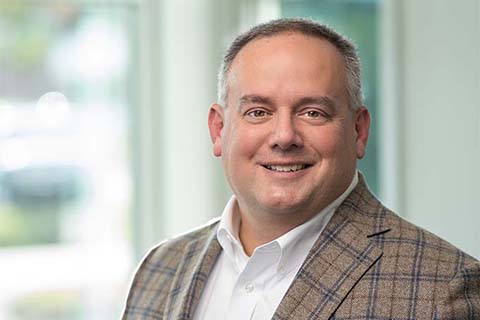The SECURE 2.0 Act and Its Impact on Dentists
February 17, 2023
At a glance
- The main takeaway: The newly passed SECURE 2.0 Act is poised to revamp retirement planning and saving as we know it. The law will have a major impact on dental practice owners and their teams.
- Impact on your business: Utilize new rules allowed by the IRS to significantly increase your allocations from tax-deductible contributions, while improving your recruiting and retention efforts.
- Next steps: Aprio’s Retirement Plan Services Team can help practice owners proactively make better, informed decisions and maximize their retirement plans.
Get in touch with an Aprio advisor today
The full story:
Congress recently passed sweeping legislation that will affect millions of Americans’ retirement plans. The SECURE (Setting Every Community Up for Retirement Enhancement) 2.0 Act, which is included in the Consolidated Appropriations Act of 2023, is expected to enhance the way we save for retirement.
As the owner of your dental practice, it is important to stay up-to-speed on the new law and its many provisions — doing so will help you maximize your personal retirement account while creating a competitive recruitment and retention vehicle.
Plus, it’s a no-brainer for practice owners to use the SECURE 2.0 Act as an opportunity to review their company retirement plans. Those who do not take advantage may lose quality employees to competitors or miss out on an opportunity to build wealth through tax savings.
How does the SECURE 2.0 Act affect dentists?
The Act is designed to enhance retirement savings accounts for millions of Americans by lowering employer costs to sponsor and fund plans while incentivizing employees to save for retirement. According to the American Retirement Association (ARA), lawmakers have worked hard for more than a decade to make this legislation a reality.
There are over 90 different rule changes included in the new law. Below, we’ve highlighted three provisions in particular that we believe will have the biggest impact on your dental practice and team members:
- Matching contributions for student loan repayments: The SECURE 2.0 Act permits matching contributions for student loan repayments, beginning in 2024. The time to start working on this provision is now. Before January 1, 2024, practice owners must decide whether or not they will take advantage of the provision; and if they do, they must provide education and employees must elect to participate before the deadline. This provision could help owners attract and retain associate dentists who are actively paying off dental school debt.
- Employer matching contributions can now be made on a Roth basis: Plan sponsors can now choose to allow participants to elect whether or not to “Roth” their contributions from their employer.
- Increased tax credit: SECURE 2.0 increases the tax credit allowed for small employers from 50% of startup costs to 100% effective for taxable years after December 31, 2022. The bill also includes a new credit for newly established plans that covers $1,000 of employer contributions for each eligible employee (reduction for over 50 employees; a maximum of 99 employees can receive the credit).
Keep in mind that utilizing a 401(k) plan for your practice may or may not be beneficial, depending on where you are in the business lifecycle.
It’s important to consider how to best use your cash. Saving for retirement now may not be as critical as investing back into your business or yourself. If your practice is just getting off the ground, or if you’re not comfortable with putting at least $22,500 or more per year toward your retirement, it may be best for you to hold off on starting a 401(k) plan.
Give your retirement plan a second look
The SECURE 2.0 Act should encourage dental practice owners to analyze their existing retirement plans. This exercise not only ensures owners have a good understanding of the new law, but it also helps them identify gaps that may expose them to personal liability as a plan fiduciary.
When reviewing your plan, make sure to take a close look at the following:
- Investment fees: High investment commissions or fees can have a major impact on participant account growth. Since these asset-based fees are a “non-cash expense,” they are hard to detect. Even if you dig through the maze of your plan’s fee disclosures, you may not understand what fees you are being charged. Monitoring the reasonableness of your plan’s fees is a key fiduciary duty per ERISA. If you don’t know how much your plan is charging in fees or commissions, we encourage you to find out.
- Inefficient plan design: Retirement plan maintenance tends to fall toward the bottom of a dentist’s to-do list. As a result, many plan designs are not aligned with the practice or the owner’s tax strategy and financial plan. Making slight adjustments, or amendments, to your Plan Document could result in thousands of dollars more in owner allocations and company tax deductions for your business.
- Advisory relationship: Of the more than 300,000 financial advisors in the US, only a small percentage truly serve as independent fiduciaries. Advisors serving in the fiduciary capacity are required to advise in their clients’ best interests — just like you are required to manage your retirement plan in participants’ best interests. We firmly believe that your retirement plan advisor should serve in the fiduciary capacity, per their written contract with your plan. The question is: does your advisor serve as a 3(21) or a 3(38) fiduciary? It’s important to perform ample due diligence and find answers to know what your coverage is.
The bottom line
Want to learn more about the SECURE 2.0 Act and how it affects your dental practice? Get in touch with Aprio’s Retirement Plan Services Team. Recognized by the National Association of Plan Advisors (NAPA) as one of the nation’s top defined contribution plan advisors, Aprio sits on your side of the table to provide comprehensive, fiduciary support. Our primary goal is to help practice owners improve outcomes, save time and reduce risk.
Keep in mind that the US Department of Labor highly recommends conducting retirement plan reviews on a periodic basis. At Aprio, we are happy to review your retirement plan at no charge to highlight existing gaps or opportunities. Our team will compare your plan to industry benchmarks regarding fees, investments, plan design and team member outcomes.
Related Resources
About Aprio’s National Dental Practice
6 Important Provisions of the SECURE 2.0 Act
Set up a quick, complimentary call with us today.
Recent Articles
About the Author
Trenton D. Watrous
Trent serves as a strategic business advisor to dentists and dental practice owners, leveraging his extensive experience as a tax advisor, auditor, forensic accountant and expert witness. He educates and coaches his clients to navigate the complex financial challenges that come with being a practice owner in today’s rapidly changing and competitive business environment.
Phil Toupin
Phil Toupin is a Retirement Plan Advisor with Aprio’s Retirement Plan Services practice, where he supports businesses across industries with retirement plan design, employee education, strategic advisory and retirement plan compliance. Phil is committed to working closely with his clients to maximize the value of their retirement plans through tax-efficient solutions and strategies.
Stay informed with Aprio.
Get industry news and leading insights delivered straight to your inbox.


